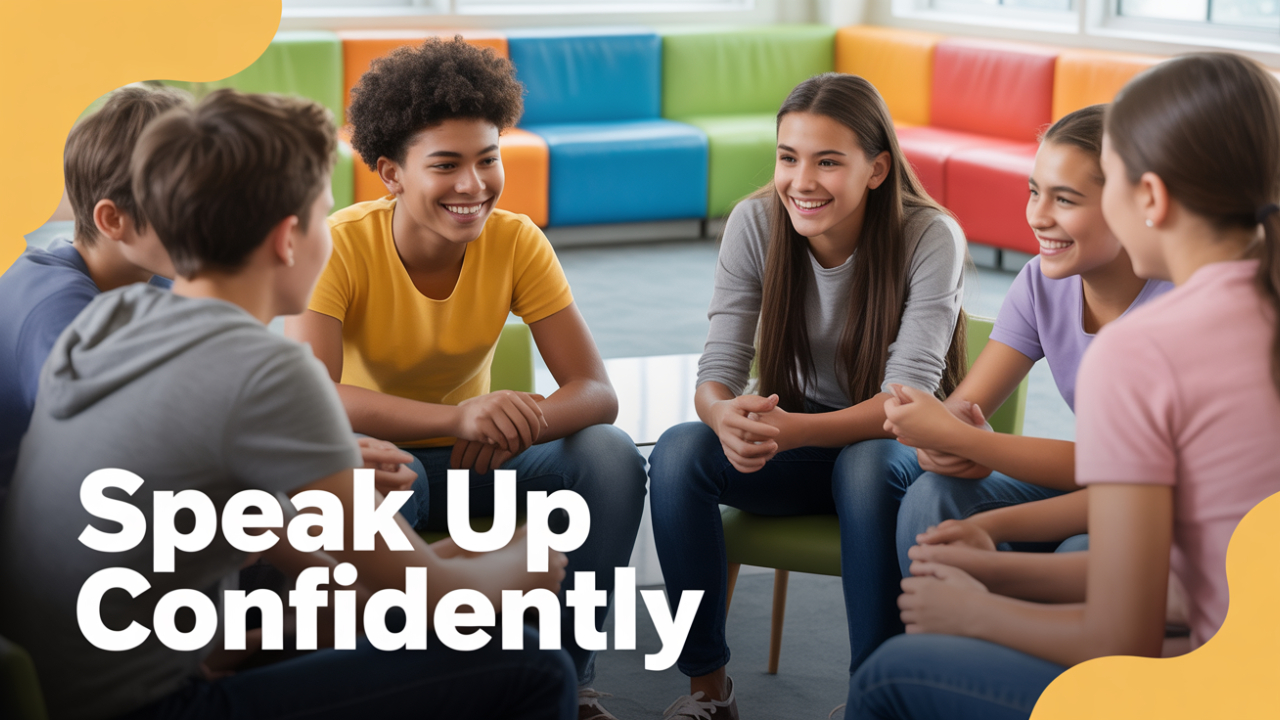Teen Communication Skills
Good communication is an important life skill for teens. It helps them build healthy relationships, express feelings, and solve problems. Strong communication skills can improve friendships, family connections, and school performance. At Adolescent Mental Health in Orange County, California, we help teens strengthen their ability to communicate in clear and respectful ways.
Why Communication Skills Matter for Teens
Teen years are full of changes in mood, behavior, and social life. This is also when many teens face peer pressure, academic stress, and growing independence. Without good communication skills, misunderstandings can increase and conflicts can become harder to manage.
Communication skills help teens:
Express needs and emotions without hurting others.
Listen to different points of view.
Build trust with friends, family, and teachers.
Resolve disagreements in a healthy way.
Ask for help when needed.
When communication breaks down, teens may experience more stress, social anxiety, or feelings of isolation. These problems can affect mental health and make it harder to cope with daily challenges.

Common Communication Challenges in Teens
Many teens struggle with communication because they are still learning how to manage emotions and think through situations before reacting. Some common challenges include:
1. Limited Emotional Vocabulary
Teens may find it hard to put their feelings into words. This can lead to frustration or withdrawal. For example, a teen might act angry when they are actually feeling scared or stressed.
2. Interrupting or Talking Over Others
In social settings, teens may speak before others finish or compete to be heard. This can make conversations feel one-sided and create misunderstandings.
3. Avoiding Difficult Conversations
Some teens avoid talking about problems because they fear conflict or judgment. This can lead to unresolved issues and resentment.
4. Overuse of Digital Communication
Texting and social media are convenient but can make it harder for teens to practice face-to-face communication. Tone and emotion can be lost in digital messages.
5. Emotional Outbursts
Strong feelings like anger, embarrassment, or anxiety can cause teens to raise their voice, shut down, or say things they regret.
How Mental Health Affects Communication
Mental health plays a large role in how teens communicate. Conditions such as anxiety, depression, ADHD, or social anxiety disorder can make it harder to start conversations, stay focused, or respond calmly. Stress from school, family, or social situations can also affect tone, listening skills, and patience.
Teens with mental health challenges may:
Struggle to keep eye contact.
Speak very little or too much.
Have difficulty listening without distraction.
Misinterpret the meaning of what others say.
Withdraw from conversations completely.
Therapy can help teens understand how mental health affects communication and give them tools to express themselves more effectively.

Key Communication Skills for Teens
At Adolescent Mental Health, we focus on helping teens build core skills they can use in daily life. These include:
1. Active Listening
Active listening means focusing on what the other person is saying without interrupting. It involves making eye contact, nodding, and repeating back key points to show understanding.
Example:
Instead of planning what to say next, a teen listens fully, then says, “So you’re saying you felt left out when I didn’t invite you?”
2. Clear Self-Expression
Teens learn to speak in a way that is honest but respectful. Using “I” statements can help them express feelings without blaming others.
Example:
“I feel stressed when plans change at the last minute” is more constructive than “You always ruin everything.”
3. Nonverbal Communication
Body language, tone of voice, and facial expressions can send powerful messages. Teens can learn to notice these signals in themselves and others.
Example:
Crossed arms and avoiding eye contact can signal disinterest or defensiveness.
4. Managing Emotions
Communication improves when teens can pause, take a breath, and respond instead of reacting in anger or frustration.
Example:
A teen who feels upset after receiving criticism can take a moment to calm down before responding.
5. Conflict Resolution
Teens benefit from learning how to find common ground and compromise. This reduces the chance of small disagreements turning into bigger problems.
Example:
Two friends may agree to split their time between two activities instead of arguing over which to choose.
Ways Parents Can Support Teen Communication Skills
Parents can help their teens improve communication at home by modeling good habits and creating a safe space for open discussion. Here are some strategies:
Model Respectful Conversations – Speak in a calm tone and avoid interrupting.
Ask Open-Ended Questions – Encourage teens to share more than a “yes” or “no” answer.
Validate Feelings – Let teens know their emotions are heard and respected, even if you don’t agree.
Limit Distractions – Set aside time for face-to-face talks without phones or screens.
Encourage Problem-Solving – Work together to find solutions instead of giving immediate instructions.

How Therapy Helps Teens Communicate Better
Therapy sessions provide a safe space for teens to practice communication without fear of judgment. At Adolescent Mental Health, our therapists use approaches such as:
Cognitive Behavioral Therapy (CBT) to help teens reframe negative thoughts and communicate more positively.
Dialectical Behavior Therapy (DBT) to teach mindfulness, emotional regulation, and conflict resolution.
Role-Playing Exercises to let teens practice conversations in a supportive setting.
Social Skills Training to build confidence in group interactions.
Through therapy, teens learn how to express themselves clearly, listen with empathy, and handle difficult conversations.
Communication in Different Social Settings
Teens need to adapt communication skills based on their environment. For example:
At Home – Use open dialogue to share updates, feelings, and concerns.
At School – Practice respectful interactions with teachers, peers, and group projects.
With Friends – Balance talking and listening, and address issues before they escalate.
Online – Be mindful of tone, clarity, and respectful language when texting or posting.
Signs Your Teen May Need Help Improving Communication
You may want to seek professional support if your teen:
Frequently misunderstands others or feels misunderstood.
Has trouble keeping friendships due to arguments or silence.
Avoids speaking up in class or group settings.
Becomes overly defensive or shuts down during conversations.
Struggles to express feelings in healthy ways.
Early support can prevent long-term problems in relationships and mental health.
Practical Tips Teens Can Use Today
Here are simple steps teens can start using right away:
Take a deep breath before responding in a heated moment.
Use eye contact to show engagement.
Repeat back important points to confirm understanding.
Limit distractions when talking.
Ask clarifying questions if something is unclear.
Practice speaking in a calm, even tone.
Building Confidence Through Communication
When teens improve their communication skills, they often gain more confidence in social, academic, and family situations. They feel more understood, respected, and able to stand up for themselves. These skills prepare them for adult life, where clear communication is essential in work, relationships, and community involvement.
Final Thoughts
Communication is a skill that grows with practice. Teens who learn to listen actively, express themselves clearly, and manage emotions will find it easier to build strong, healthy relationships. At Adolescent Mental Health in Orange County, we help teens develop these skills through therapy, guidance, and real-world practice. With support from parents, teachers, and peers, every teen can become a confident communicator.
Frequently Asked Questions
1. How can I tell if my teen struggles with communication?
Signs include frequent misunderstandings, avoiding conversations, becoming defensive quickly, or having trouble expressing emotions. You may also notice your teen withdrawing from social situations, interrupting often, or relying heavily on texting instead of face-to-face talks.
2. What role does mental health play in teen communication?
Mental health conditions like anxiety, depression, ADHD, or social anxiety disorder can affect how a teen interacts. These conditions may cause a teen to avoid eye contact, speak less, talk too fast, or misinterpret tone and intent. Support from a mental health professional can help address these challenges.
3. Can therapy help improve my teen’s communication skills?
Yes. Therapy provides a safe space for teens to practice speaking and listening skills. Techniques such as Cognitive Behavioral Therapy (CBT), Dialectical Behavior Therapy (DBT), and role-playing can help teens learn to express themselves clearly, manage emotions, and resolve conflicts in a healthy way.
4. How can parents encourage better communication at home?
Parents can model respectful conversation, use open-ended questions, and validate their teen’s feelings. Setting aside time for screen-free talks, listening without interrupting, and encouraging problem-solving together can make communication easier and more meaningful.









